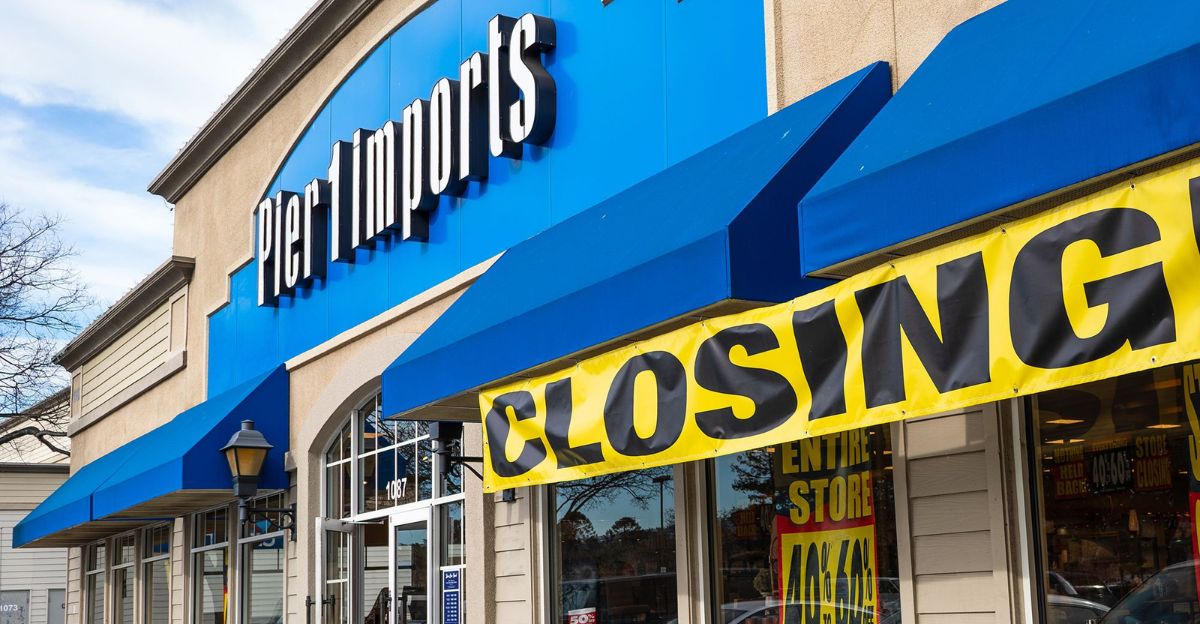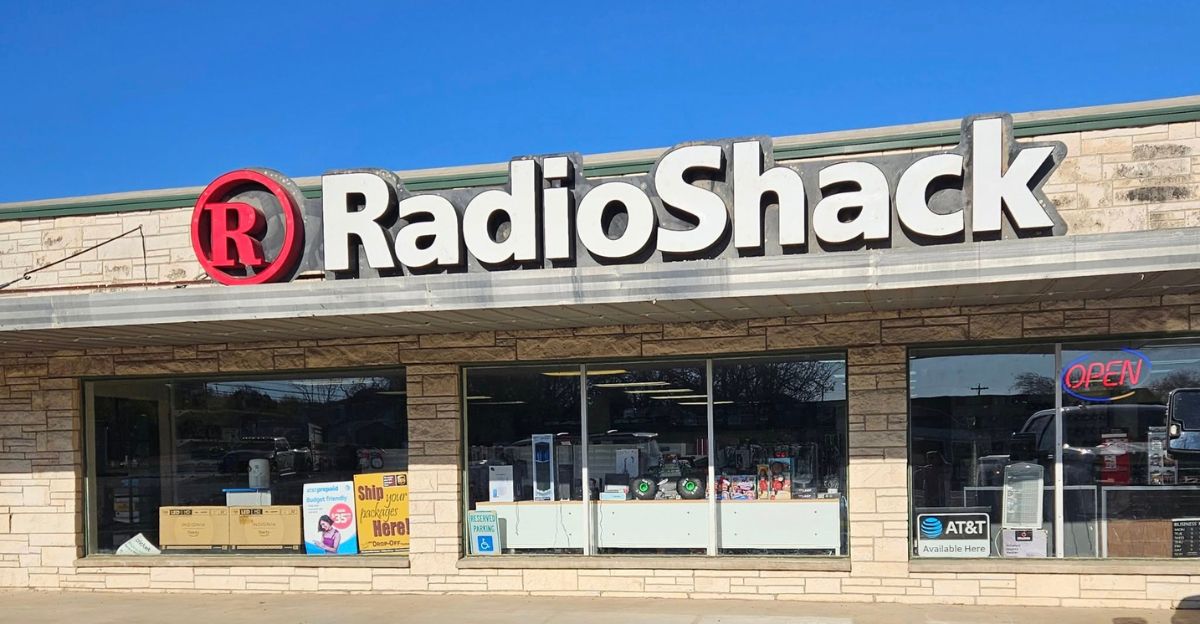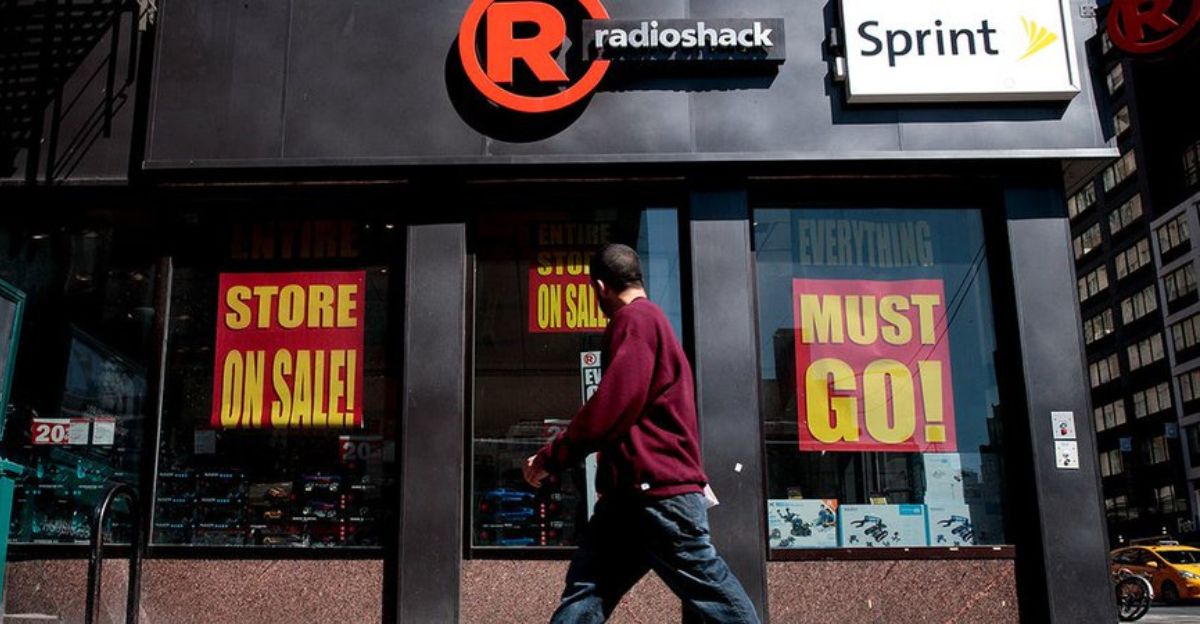
The largest retail Ponzi scheme since Enron, involving $112 million, centers on Retail Ecommerce Ventures (REV), a Miami-based company led by co-founders Alex Mehr and Tai Lopez. They acquired distressed brands such as RadioShack, Pier 1 Imports, Modell’s Sporting Goods, and others with promises to revive these iconic retailers through a pivot to e-commerce.
However, the U.S. Securities and Exchange Commission (SEC) accuses them of deceiving hundreds of investors by misrepresenting the companies’ financial health and using new investments to pay existing investors, hallmarks of a Ponzi scheme. This scandal exposes vulnerabilities in retail brand revivals and aggressive investor hype tactics.
The Historical Background of Brand Purchases

Targeting well-known brands like RadioShack, which declared bankruptcy for the second time in 2017, and Pier 1 Imports, which declared bankruptcy in early 2020, REV started purchasing bankrupt retail brands in 2020. The idea was to begin solely online businesses by utilizing well-established brand recognition.
These brands have historically suffered as a result of changes in consumer behavior and retail environments. Although REV’s model was viewed as a novel turnaround approach, it overpromised investors’ financial returns while underestimating structural retail challenges.
The Scheme’s Mechanisms

Mehr and Lopez raised about $112 million between 2020 and 2022 by selling unsecured notes that promised ownership shares with 2% monthly payouts and up to 25% annual returns. They promised investors that their money would go toward the operations of particular businesses, but the SEC complaint shows that money was regularly transferred between companies and used in part for personal enrichment.
In order to continue making payments, REV used internal transfers, loans, and funds from new investors, all of which are traditional Ponzi schemes that conceal operational losses.
Coaching for Investors and Psychological Manipulation

Using promotional videos, Lopez, a well-known figure on social media with a sizable following, persuaded investors that the portfolio was “on fire” and had “strong cash flow.”
By playing on social proof and authority bias, this astute psychological maneuver gave the impression that the company was doing well. Their messaging demonstrated the effectiveness of carefully crafted influencer-led investment pitches in the digital age by taking advantage of investors’ FOMO about a low-risk, high-return opportunity.
Influence on E-commerce and Retail Trends

Despite ignoring the fact that simply possessing a distressed brand name does not equate to sustainable business models, REV’s model sought to profit from the pandemic-accelerated e-commerce. The retail sector’s problems were exacerbated by the misallocation of investment capital, which impeded real operational growth.
This case serves as a clear warning about the boundaries of e-commerce pivots and brand nostalgia when they are not backed by true innovation and financial health.
SEC Action and the Legal Framework

The REV founders are accused of fraud and material misrepresentations in the SEC’s lawsuit, which was filed in a federal court in Florida.
The defendants broke securities laws intended to protect investors by using the money they raised in Ponzi-like payments while mislabeling it as secured investments. This regulatory crackdown emphasizes how crucial strict oversight is for creative but risky retail investment endeavors.
Could We Have Predicted REV’s Failure?

According to some analysts, REV’s plan to revive its retail business was doomed from the beginning. It was extremely risky to buy severely damaged brands with uncertain futures and rely on financial engineering rather than operational turnarounds.
Instead of being an outright fraud at first, the aggressive ROI promises made to investors might have been a deliberate decision to support unsustainable growth. This brings up more general issues regarding investor due diligence and the carelessness of retail speculative private equity.
Historical Similarities to Other Scandals and Enron

The REV case is a more obvious Ponzi scheme that uses investor inflows to pay returns, whereas Enron’s accounting fraud involved intricate off-balance-sheet entities.
Both demonstrate how phony financial narratives and charismatic leadership can defraud unwary investors. By showing that contemporary retail Ponzi schemes can equal historical corporate frauds in scope and impact, the comparison highlights the scandal’s significance.
The Function of Whistleblowers and Anonymous Complaints

According to reports, former REV employees complained to the SEC as early as 2023 about the company’s inflated claims and poor management. Because insider disclosures give regulators firsthand evidence, they are essential in exposing such schemes.
But whistleblower reports frequently go unanswered, which lets fraud spread unchecked and reveals structural flaws in legal enforcement and corporate governance.
Financial Repercussions for Creditors and Investors

Since payments were dependent on fresh capital inflows rather than actual profits, investors lost an estimated $112 million in total.
At least $5.9 million of the distributed returns were Ponzi-style payments made with investor funds, and the founders are accused of embezzling $16.1 million for their own use. As sales of default and brand assets shift value to new businesses, causing reverberations throughout retail finance ecosystems, creditors also suffer.
The Function of Customer Trust and Brand Legacy

REV used the nostalgic appeal and brand equity of RadioShack and Pier 1 Imports to entice investors. But only when operational excellence and open management are present does brand legacy matter.
The failure of REV could cause long-term harm to investor and consumer confidence in legacy retail brands, making future industry-wide brand revitalization initiatives more challenging.
The Revolution in E-Commerce and Its Drawbacks

REV’s shift to online sales was in line with more general retail trends that the pandemic had accelerated. However, e-commerce success necessitates investments in technology, customer experience, and logistics in addition to brand acquisition.
Resources necessary for this kind of development were diluted by the financial mismanagement, demonstrating how the haste to digitize retail can be abused for illicit purposes.
Strategic Errors and Insufficient Openness

Although REV operated with widespread fund commingling, it promised targeted use of funds for each portfolio company. This fundamental violation of fiduciary responsibility and transparency is a strategic failure made worse by regulatory infractions.
The case illustrates how operational chaos and dishonest financing can be made possible by opacity in multi-brand investment firms.
Failures in Public Relations and Media Management

The leadership of REV failed to manage investor relations honestly in spite of their marketing and public-facing bravado.
Employee and public skepticism was sparked by promises of 20–25% returns while engaging in luxury lifestyle spending. Credibility was damaged by this discrepancy between image and reality, highlighting how vital PR ethics are to maintaining investor trust.
Possible Second-Order Impacts on Retail Purchases

Future investors may be discouraged from supporting troubled retail brands as a result of this scandal, especially those that are resurrected through e-commerce initiatives funded by private equity.
Retail brand consolidations might be slowed down, but investor protection and transparency would be enhanced if underwriting standards and regulatory scrutiny of turnaround entrepreneurs were tightened.
Wide-ranging Market and Economic Consequences

In light of the uncertain global economy, the $112 million fraud heightens skepticism about investments in the retail sector. It draws attention to weaknesses in retail financing models that rely on aggressive growth narratives and funding from speculative investors.
Capital flows into retail innovation sectors may be impacted by the fallout, which could make institutional investors more cautious.
Social and Psychological Repercussions

In addition to monetary losses, betrayal and damaged trust cause psychological harm to impacted investors. Promises of high returns increased optimism, made losses agonizing, and fueled general mistrust of investment advice.
The emotional aspects of financial fraud are highlighted by this case, which calls for improved systems of support and education for investors.
New Structures for Due Diligence in Retail Investments

Novel frameworks that prioritize operational metrics over brand hype may be inspired by the REV case.
In order to raise the bar and stop Ponzi-style schemes in retail investments in the future, investor evaluation strategies may incorporate psychological risk factors, leadership credibility assessments, and real-time financial transparency as essential criteria.
Theories Regarding the Longevity of the Scheme

It’s possible that the founders of REV had good intentions when they started the company, but as retail realities set in, they turned to Ponzi schemes.
Rather than being a cause, the social media-driven marketing strategy sped up the scheme’s expansion by thrilling investors. This theory necessitates more investigation into the ways influencer culture impacts the development of financial fraud.
Conclusion

The SEC’s discovery of the RadioShack and Pier 1 Ponzi scheme, which combined aggressive financial promises, influencer marketing, and nostalgia, represents a turning point in retail investment fraud. Its demise highlights the dangers of over-relying on legacy brands in the absence of openness and a proper operational foundation.
This scandal offers investors, regulators, and the retail sector a crucial lesson in due diligence, skepticism, and the psychological factors that contribute to financial fraud in the contemporary digital age.